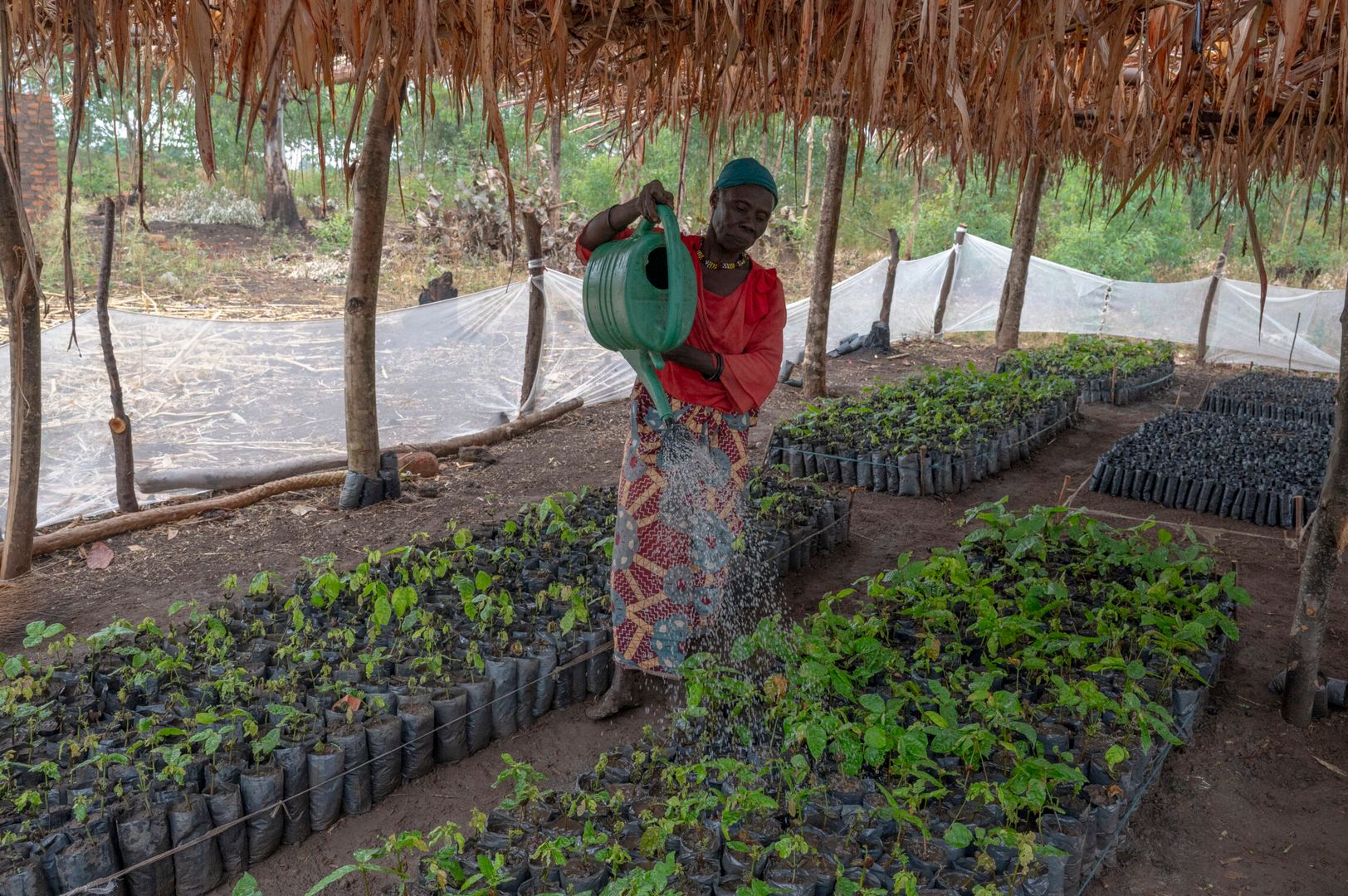The Issue
Uganda is hosting over 1.5 million refugees, including over 860,000 children, due to its progressive refugee policy that encourages inclusion and self-reliance. However, these opportunities have not been fully utilized to foster resilience and self-reliance among refugees. 90% of refugees rely heavily on humanitarian food/cash aid, and 91% of refugee households are economically vulnerable. This has put pressure on natural resources and accelerated environmental degradation. Food production and income remain insufficient to meet basic needs. Underfunding has led to increased vulnerability and food insecurity among refugees, leading to harmful coping mechanisms such as reducing meals, borrowing, begging, withdrawing children from school, child labour, and forced marriage.
The Project
To respond to the these challenges, DCA is applying an integrated approach to build the capacity and resilience of the refugees and host communities to reduce vulnerability. This will be achieved through the transition to agroecology which provides multiple benefits, including improved food security, increased income, biodiversity, reduced emissions, increased resilience and productivity, and carbon being absorbed in the soil. All these benefits are especially important for the poorest communities that rely on small-scale agriculture as their main livelihood. The holistic approach is key in promoting agroecology among refugees and host communities in West Nile, Uganda.

The Change
DCA is training 50 agroecology households and their spouses in Yumbe and Terego on best practices of agroecology-based agriculture, including visioning, farm planning, landscape modifications, diversification of species, water and soil management techniques, integrated farming practices, and organic pest control while maintaining 60 old households (50% refugees, 60% women). The trained households will replicate this knowledge, contributing to food security, income, and resilience.
Two DCA staff will be trained in resilience design and practices to enhance their knowledge and skills, as well as improve quality monitoring.
DCA is providing cash support to 50 agroecology households through digital cash transfers. The trained households will apply their knowledge on the ground, with continuous technical support provided by farmer coordinators and DCA experts. DCA will also help identify gaps and challenges faced during implementation, covering each household based on identified gaps and budgets.
The Results
So far, the project has increased knowledge exchange among the beneficiaries and all household members, leading to a shift in their attitudes through the adoption of best practices in agroecology. There is knowledge transfer on climate adaptation and climate-smart agriculture through household family visioning involving men, women, boys, and girls and a strong farmer’s organization around the lead farmers. The project ensures equal contributions and involvement of women, men, and children, as it engages all households to work collaboratively.
About this project
Title: Agroecology for Sustainable Food Production and Livelihoods Resilience among Refugees and Host Communities in West Nile Uganda.
Period: May 2024 – December 2025
Amount: 150,000 DKK
Outreach: 50 new refugees and host community households as direct beneficiaries (300 individuals as indirect beneficiaries) committed farmers using the household approach while maintaining the 60 old households (50% refugees, 60% women for the project.
Donor: Kirsten Borger Poulsen Foundation

